How often do you have time for thoughts?
“If only I had more time in the day…”
“Once *this specific shit* is over, I’ll have more time for what I want to do…”
“I’m not exercising because I don’t have the time…”
Some people seem to get more done in a day than others do in a week. How can that be?
People who never have enough time are fed the delusion that the solution is time management skills.
But what the hell is time management skills, and why the fancy name!?
When a toddler learns to walk, do we call this… space management skills!?
To manage time is to try to manage a huge river you’re swimming in.
 It not only doesn’t work, it’s conceptually impossible. What people actually mean comes down to:
It not only doesn’t work, it’s conceptually impossible. What people actually mean comes down to:
- Better Priorities
- Increasing Productivity
- Getting rid of addictive time-wasting habits
So, what if the word is wrong, but the concept is right? Well… no.
What you do in time is… everything you do. Time management is a sneaky way to say Life management.
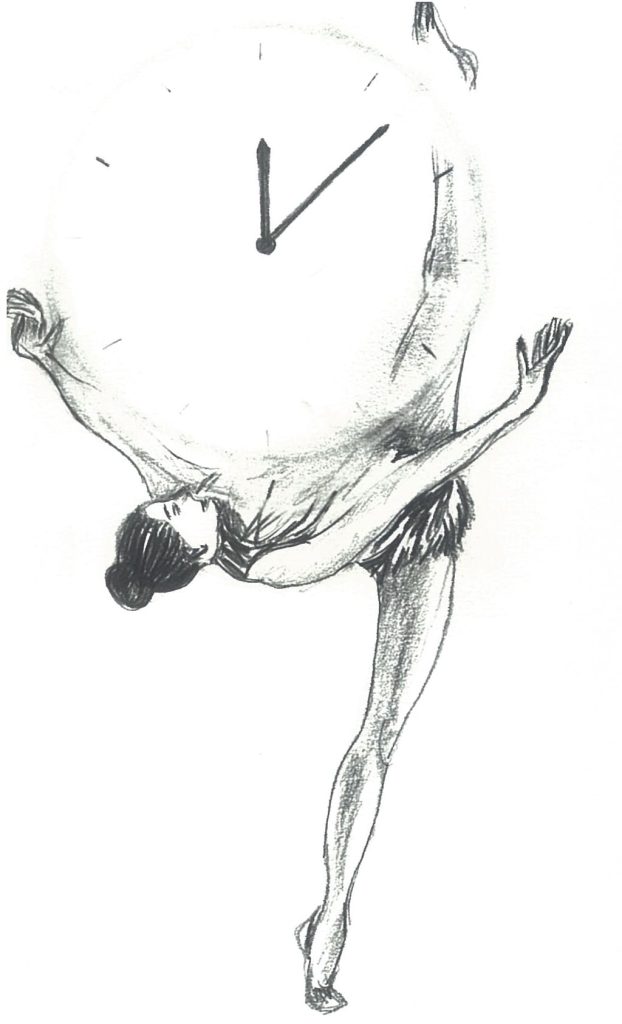 And Life management is hard, unnatural, exhausting, impossible to fully achieve, creates expectations, and decreases happiness. If you live with the right mindset (the Hunter one), you don’t need Life management.
And Life management is hard, unnatural, exhausting, impossible to fully achieve, creates expectations, and decreases happiness. If you live with the right mindset (the Hunter one), you don’t need Life management.
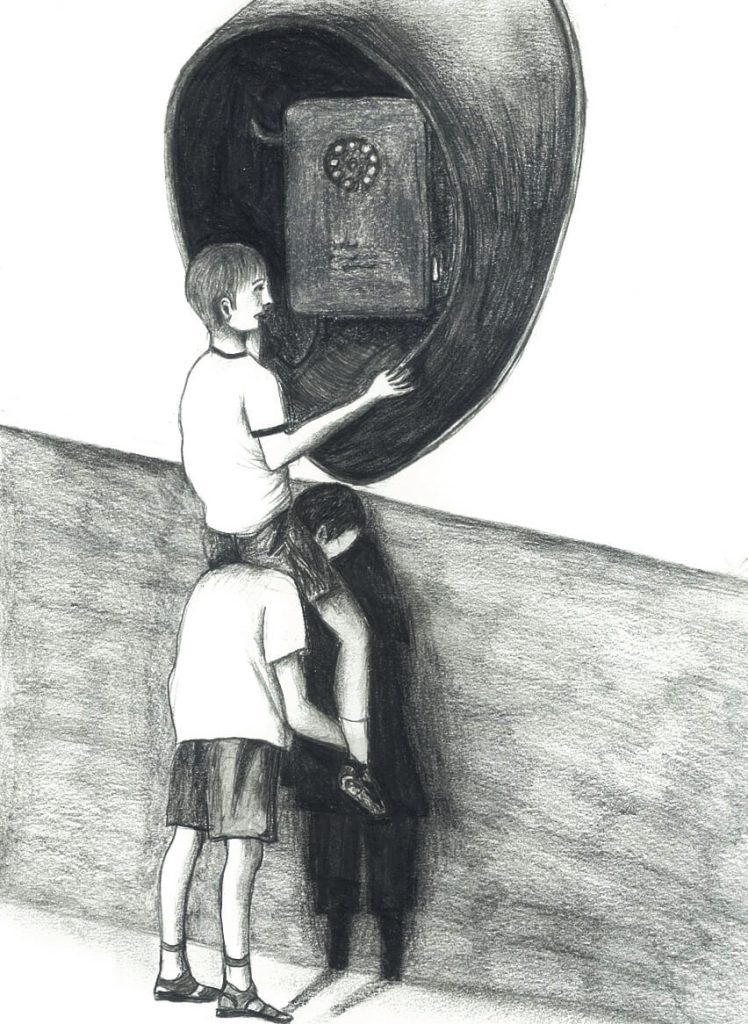 Things just happen, and happen mostly great when you give up control, when you stop managing your life.
Things just happen, and happen mostly great when you give up control, when you stop managing your life.
But even if you needed Life Management (and you don’t!), having a term for something that generic would be a useless trap word that would just be in the way. Better segment this into its understandable and actionable parts, not unite it under the “Time management” umbrella.
We end up with a spectacular 3-D fail:
Something we don’t need is pursued… but also structurally in the wrong way… and to add to the fun, we call it by the wrong name. What could go wrong?
Of course, the first thing that goes wrong is the “management” itself. Never expect a direct effort to control to have a high success rate – people will resist, even if they don’t know why… because deep down we all feel the importance of adaptability for survival and prefer to keep our options open. Here are the separate fails:
- Better Priorities – we’ll talk about choices and long-term freedom as a priority in the Freedom post. Ironically, people have bad priorities partially because they don’t understand time… but they also don’t understand time because they have bad priorities (developing time understanding is not a priority for most people). And when I see how much time most people spend having fake fun on screens, compared to innovating in the golden age of innovation, travelling our beautiful world, or meeting people, I don’t think we’re having much progress on priorities… despite the app stores having hundreds of time management apps.

- Increasing Productivity – we’ll talk more about this in the productivity post. For now, let’s remember that a productive state of flow can only happen while you’re in Hunter mode. And for this to happen, you have to minimize self-pressure. This means the least possible to-do lists, reminders, apps, phone, and distractions in general. Time management apps will not help you reach flow; they are more of a pick-yourself-up-when-you ‘re-totally-down last resort solution. Management in general does not increase productivity, the opposite, autonomy, does – including from yourself.1
- Getting rid of addictive time-wasting habits – These habits (like looking at your phone every 2 minutes) are coping mechanisms for the lack of meaning you assign to what you’re doing. No Band-Aid solutions for time management will cope with a problem as serious as a lack of meaning. You will have to eventually make Game of Life and possibly Game of Self changes in order to find meaning again.

So, Time management is actually Life management; it doesn’t work as advertised because it increases pressure and expectations when you need the opposite. Does this mean you just leave time aside and don’t develop any time-related skills? Actually, this is what most people are doing. They live their lives and just let time passively pass by. A typical thought of theirs goes like this:
If we cannot find enough time during the day, if we cannot influence it, if we can barely manage ourselves and our actions within time constraints, what are our chances against the behemoth of time, built into the universe itself?
This thought reveals the single word that can ruin everything for you: against.
You’re not in a race against time, just like you’re not in a race against the river you’re swimming in.
In fact, the river is giving you most of the speed.
Because, believe it or not, regardless of age, unless you’re gravely ill, time is and will always be your ally. Not your enemy. Your ally. But it’s your responsibility to understand time, so the alliance between you two can materialize. But how?
Let’s start with the golden rule:
Time understanding is not time management!
If you were a factory, you would need time management. But you’re not. In fact, you and the factory have the opposite objectives.
The factory wants to be predictable. But you’re in a constant fight with inertia, and the only way to sometimes win is to be unpredictable, including to yourself. This lack of control may sound very scary, but in practice, you have no idea if being predictable or unpredictable is more of a threat to your well-being. So this fear is not rational, and you should face and challenge it.
 The factory has limited potential, and it maximizes it through goals. But you have unlimited potential, and goals just get in the way of accomplishing it.
The factory has limited potential, and it maximizes it through goals. But you have unlimited potential, and goals just get in the way of accomplishing it.
The factory needs planning and management. But you don’t. If you don’t need specific goals, why plan and create harmful limitations and expectations for yourself? You just need a direction, and following a direction does not need planning – taking it one step at a time is usually the best option, as this is the Hunter mode behavior.
What is time understanding, then?
It’s a purely intuitive skill that is not taught anywhere, and most people lack it. It’s about feeling the flow of time and adjusting the timestamps of your life and work to it. The core concept is actually not easy to explain logically, but I’ll do my best using examples. Let’s compare Time to the other core quantitative concept of life – Money.
If you want financial freedom, you have to learn to feel the quantities of money (both large and small), and this intuitive understanding can only be gained with experience. Then you will be ready to start a business by following the right principles, you now feel, and kiss your financial problems goodbye.
I’m currently handling the investment decisions of an 8-figure company without any financial software or balance spreadsheets, based solely on my feel. Of course, if I drown myself in data and replace intuition with logic, I may do some small decisions a bit better… but this cannot happen without sacrificing this intuition. And when times get tough and new business models have to be conceived to save and grow the company, I’ll need the intuition more than any other skill. Because when the tides are turning, if you have intuition, you’re Apple, and if you have the spreadsheets, you’re Nokia.
Intuition is just so much more evolutionary mature and therefore more powerful than logic that every complex task that can be handled intuitively, should be.2 Logic is, in evolutionary terms, a baby that is just learning to crawl. The triumph of logic in modern society is only because The Scientific Method manages to filter out the 99% of cases where our logic is wrong and combines and constantly improves the best 1% of ideas of the smartest people on Earth in a single body of knowledge. On a personal level, logic will fail most people most of the time.
As you can see, the intuitive understanding of money comes with just feeling any number of dollars or other currency. Money is just numbers. For example, if you have such intuition, you just feel that a business like WeWork is not sustainable when you see its core numbers. This way you can see through much of the economic bullshit of the current age fueled by endless capital, of which WeWork is the poster child. We need more investors who feel when to say no.
Got the money idea? Time understanding means having the same feeling about time.
 Any period of time.
Any period of time.
If I say “7 dollars”, you intuitively know what 7 dollars can buy, even if you never spent exactly 7 dollars. It’s the same with time understanding.
If I say “7 minutes”, you should have an intuitive answer about what you can do that you expect to take exactly 7 minutes (not 5 and not 9!), that will meaningfully improve your work or your life, even if a tiny bit. Even if you never did exactly 7 minutes of the activity.
Sounds hard, but why would it be easy? As usual, no one ever taught us this basic life skill…
No one even bothered to tell us this skill exists, so we can work on it. On the brighter side, the more you suck, the faster you improve 🙂
How about 80 minutes? Or 150 disconnected intervals of 30 seconds each? What can you do with your life in 30 seconds?
If those are the 30 seconds you beat inertia and make a positive change, and commit to it (say by sending a chat message to show intention), 30 seconds can be life-changing.
By now, you probably see that your time intuition does not really exist or is very vague. Here is an example with a large time period.
If you go to university for 4 or more years (a gigantic period in terms of potential personal growth) in most majors, you sacrifice real-life experience to attend a game-like life simulation with simulated challenges. 4 years less of real-life experience is just a crazy sacrifice. Of course, this is not valid for “hero” majors, eg, medical school. But definitely valid if you study IT or most humanities. So this is usually a bad time investment, compared to, say, entrepreneurship.
I’ve talked to some people directly about their time intuition and observed the time-related behavior of many others. Only among entrepreneurs and freelancers have I ever found people with developed time intuition.
 This is a strong indication that the 9-to-5 workweek is very detrimental to feeling time. Having your work under rhythm just makes this skill seem unimportant to your brain. On the other hand, if you manage your time alone with no support structure, you gradually start to feel it from all this experience.
This is a strong indication that the 9-to-5 workweek is very detrimental to feeling time. Having your work under rhythm just makes this skill seem unimportant to your brain. On the other hand, if you manage your time alone with no support structure, you gradually start to feel it from all this experience.
Another example of how people are clueless about time is that they have lost a sense of how smartphones and, especially, scrolling social media like TikTok, fragment our timeline.
 It may come as a surprise to some of you, but when we evolved, there was no TikTok. Spending an hour watching 120 videos, about 30 seconds each, has no evolutionary parallel. Not only because of the constant Dopamine releases but also because of the time structure you’re creating. The brain is very adaptive, but the idea of adaptation is to stick at least for a while. It’s not easy to roll back your attention span to normal after making a total switch every half minute for an hour. If you try to maintain a face-to-face conversation or do focused, deep work, the brain is still searching for its 30-second break, which will result in distractive habits like constantly looking at your phone. Scrolling Facebook or Instagram is not much better, as the bits of information are very fragmented.3
It may come as a surprise to some of you, but when we evolved, there was no TikTok. Spending an hour watching 120 videos, about 30 seconds each, has no evolutionary parallel. Not only because of the constant Dopamine releases but also because of the time structure you’re creating. The brain is very adaptive, but the idea of adaptation is to stick at least for a while. It’s not easy to roll back your attention span to normal after making a total switch every half minute for an hour. If you try to maintain a face-to-face conversation or do focused, deep work, the brain is still searching for its 30-second break, which will result in distractive habits like constantly looking at your phone. Scrolling Facebook or Instagram is not much better, as the bits of information are very fragmented.3
Unfortunately, not all the fragmentation is under our control. Stupid websites that log you out constantly for no significant security reason, 2FA verifications you didn’t want, and bad UX in general (online and offline) all contribute to disturbing your flow. The more Time Understanding you have, the harder it is to be ok with clueless systems wasting time and disregarding natural rhythm. We deserve a smoother experience, and we should fight for it when possible. And you’d better feel when it’s possible.
Time understanding will help you feel how your life develops in time, in the seconds, in the minutes, in the hours, in the days, months, and years. Life will no longer be a static picture of the present, the memories of the past and the thoughts about the future. It will feel a bit more like a continuum and more wholesome.
You will feel when something is too fast, too slow, or too repetitive. It’s like a whole new level of consciousness that keeps you time-healthy (signaling you the TikTok-like dangers) and time-effective (fighting inertia better).
And based on this feeling, you can work and grow blazingly fast while being patient about the things in life you cannot really force on the time scale and may have to wait for years (hi, Love :))
Here is another comparison that will improve your intuitive understanding of this:
Time Understanding has the same parent relation to Time Management as Spirituality has to Religion
Most Religions are a narrow, desperate path to Spirituality, where you give up and outsource it to another entity, one that imposes rules on you, something which hurts your spiritual intuition.
Time Management is a narrow, desperate path to Time Understanding, when you give up and outsource it to another entity, one that imposes rules on you, something which hurts your time intuition.
And if the other entity is your logical self rather than an external force, it’s not better, it’s worse. Your logical brain does not trust your intuitive brain, and they cannot work together on any mission. So the moment you start relying on rules, your intuition goes to sleep.
A much better approach to Spirituality is to seek your personal blend of faith and wisdom (the one that feels right) and build concepts, rather than rules. And constantly learn and adapt.
A much better approach to Time Understanding is to seek your personal intuitive blend of Time Management (the one that feels right) and build concepts, rather than rules. And constantly learn and adapt.
And just like there are thousands of religions, there are thousands of suggested methods, self-help tips, and apps for achieving Time Management.
But the method doesn’t matter when the goal itself is wrong. You should strive for Time Understanding instead.
How do we achieve the magical, intuitive skill of Time Understanding?
Intuition is built from experience and forms of data. You need data points. So, to secure a constant feed of data points, I suggest you play two simple mental games (only when you feel like it, no pressure) for the rest of your life.
 I’ve played them myself for 15+ years, they are tested, they help, and take close to zero effort.
I’ve played them myself for 15+ years, they are tested, they help, and take close to zero effort.
Intuition forming Game 1: Every time you are going to check the time on your phone, watch, PC or anywhere, first think what you think the time is (think a few seconds at most, try to feel the number instead) and then check the real time and see how much off you are. No rounding up, always say the exact minute you think. If more than an hour has passed, you can do two steps: Say it was last 15:42 about an hour ago, first think about a rounded number, say 16:40. Then, think if it sounds too early or too late. Intuition is best with binary choices, and training is very important. If it sounds too late, settle for say 16:37 and see how much off you are with both the initial 16:40 and the follow-up 16:37. With me, it’s very often say 16:35 – the follow-up almost always is closer to reality. But we’re so terribly used to round numbers that it takes 2 steps to reach the better result. My intuition, at least, never pops out a non-round number at first.
After you do this a thousand times, you will find out you are getting significantly better at it. I started with being 10-15% off, now I’m often only 2-3% off. The change is not in the way time works or in your biological clock – you change how your brain perceives the things you do and how much time they take. It’s amazing how you may not even remember what you did in the past hour, but somehow nail the time with only a 2-minute error. And you will have no idea how you are doing it. It feels like a superpower. A rare window into your intuition. Another key observation is that the moment you feel even a bit anxious about the guess, the intuition vanishes, and you make big errors. It somehow helps to be casual about it. This shows why we must not pressure ourselves, and our intuition will work much better for us in our lives, as fears will not cloud our gut feeling for it.
This will take care of your intuition about minutes and hours. And help you not lose track of time when you’re not supposed to.
Bonus tip – If you lost track of time (while awake and sober-ish) and your guess is way earlier while it’s actually late, you usually had a very good time. Sometimes, after a blast, we are very tired and sleepy and can’t fully appreciate it because the feelings of the immediate present are prevalent, making the good time seem a bit like a dream we are not sure about. But if it’s already 3 AM when you thought it was 1 AM… You had the time of your life 🙂 In moments of real happiness and immersion with your surroundings, your internal clock slows down compared to reality.
Intuition forming Game 2: When you have a recent nice memorable “anchor” event in your life (say, meeting a loved one or starting a new, better job), from time to time, compare how much time you think has passed since the event. Then calculate the actual time (wow, I have known Monica for only 6 months? I feel like a year!). If the “anchor” event fades years behind, choose another more recent event. It’s much more self-loving to track the years passing by with the beautiful things that happen to you, rather than by your age.
 This will take care of your intuition about months and years. And make you feel grateful for the amazing things in life.
This will take care of your intuition about months and years. And make you feel grateful for the amazing things in life.
The idea of the games is to create data points that will help you feel not just how much time passes, but also to relate this feeling to the things you do and their actual value to you, so you know if the time spent on non-essential and non-fun activities is worth it.
Say you enter a large supermarket at 19:35 and, when you get out, you expect it to be 19:58, but it’s actually 20:07. And it’s definitely not because you had the time of your life inside. Instead, you were too slow and indecisive.
 Time Management would say “be faster next time”, and maybe you would squeeze 5 minutes at the cost of some self-pressure to pick avocados faster, but the result will be temporary and needs constant oversight. The factors that made you slow and indecisive (a lack of meaning in this activity or a lack of energy) will often be there, dragging your time effectiveness down.
Time Management would say “be faster next time”, and maybe you would squeeze 5 minutes at the cost of some self-pressure to pick avocados faster, but the result will be temporary and needs constant oversight. The factors that made you slow and indecisive (a lack of meaning in this activity or a lack of energy) will often be there, dragging your time effectiveness down.
But Time Understanding will search for a dramatically different solution. It will show self-love and understanding for your slow performance, correctly pinpoint the real reason (lack of meaning in the activity), and search for radical change options (overcoming inertia!). Maybe you can use a home delivery service for groceries? Or hire someone to shop for you? Why not someone in desperate need of money and dignity, like a homeless person? Or a poor minority kid who feels no white person would trust them?
Your problem is actually an opportunity to improve your Game of Self, Game of Life and even the world, all at the same time. But if you’re stuck with the Time Management mindset, you’ll just be picking the avocados faster next time… if you’re lucky.
The possibilities are endless if you leave behind the Time Management treadmill. Time Understanding will offer you more than effectiveness. It will offer you self-love and creative adaptability, using time as the grid to massively improve on everything. It will make you better at work and happier in life, more than you can imagine.
Building our Time intuition takes almost no effort, as the data points are already around us; we experience time all the time. But it takes… time. And we need a backup plan for the period from when we start until we have something to work with. I hope this period will start today for you. And as I don’t want to demotivate you, that it will take years and there is no other way, here is a quick fix until you get there, a plan B which also helps plan A.
It’s of paramount importance to ask others “The Time Question” until you have developed your intuition.
And the Time Question is very simple:
What do you do all day? If possible, give me a minute-by-minute breakdown of your typical day or working hours.
A minute-by-minute breakdown of a day is as close to reality as a story can get, as humanly possible.
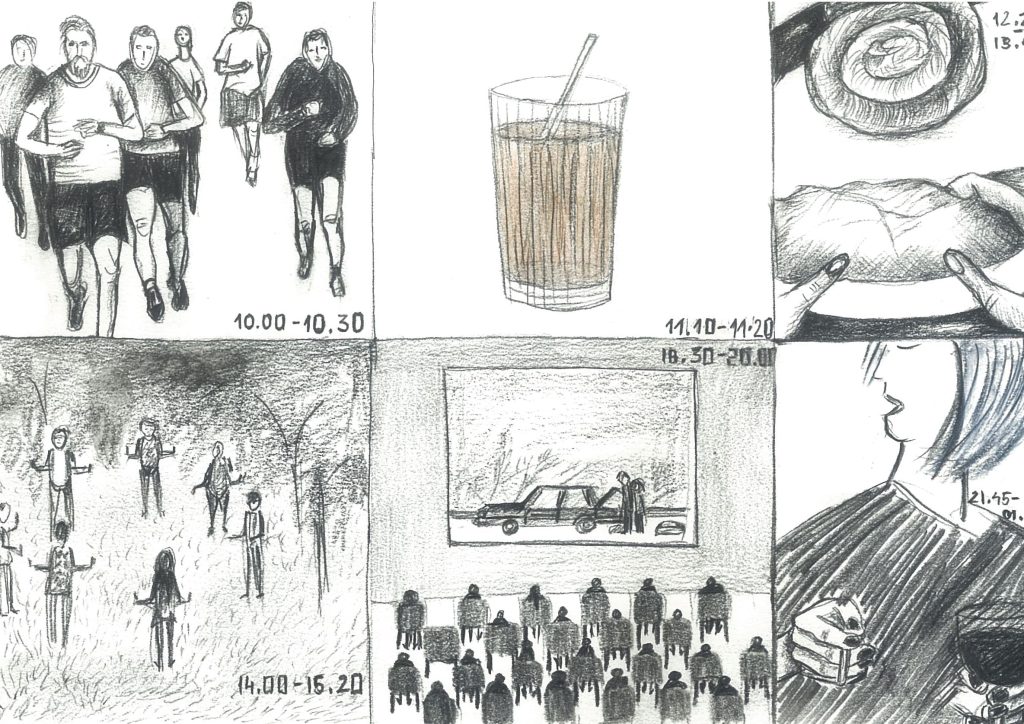 It’s a funny story how I figured out the importance of The Time Question. A Brazilian clown (yes, a barely literate clown from the circus, who had dropped out of primary school to travel with the troupe) was elected to parliament in a record-breaking vote using, among others, this ad:
It’s a funny story how I figured out the importance of The Time Question. A Brazilian clown (yes, a barely literate clown from the circus, who had dropped out of primary school to travel with the troupe) was elected to parliament in a record-breaking vote using, among others, this ad:
“What does a federal congressman do? Truly, I don’t know. But vote for me, and I’ll find out for you,”
Tiririca (Grumpy)
It seems Brazilian voters really wanted to know 🙂 But I’m even more puzzled; I had to hear a Brazilian clown with 3-rd grade education say out loud one of the most important questions in life as a joke because no one else would dare ask it for real. We truly live in wondrous times.
Ask The Time Question everywhere. Use it to ask people about their work, students about their study, and parents about their parenting. It’s the most educational (for you) question you can ask someone, along with “how do you feel about it”. These are the two questions that bring life detail and nuance.
Everything else you hear may just be bullshit words floating on the surface, dodging a real answer we don’t feel fully comfortable enough to tell. But about “what you do in your day” and “how do you feel about what you do”, there is no dodging. Unless you are asking a hardcore liar, you’ll get the truth with as little bias as possible.
While it may sound annoying to ask a single question that has a 20-minute answer, and you might get some weird reactions at first, deep down, almost all people love to share. And they will, at length.
While “how do you feel” is the central Game of Self question, “what do you do in your day” is the central Game of Life question. Ask it when you want to know. Ask it when you care. Ask it so you’re in touch with reality. Because we’re about to reconstruct reality.
Why? To improve our Game of Self.
Time Understanding can help you indirectly with your mental health. If you want progress in The Game of Self (say less fears), the smart way is to set up such a Game of Life environment that fosters this change (say one where you have to face said fears while in Hunter mode). Constructing certain situations in The Game of Life is not as easy as many factors are not under your control. You need to understand yourself, other people, how systems work… but also time, as it’s a component of everything. If you don’t have the intuition about how everything behaves and evolves over time, you cannot really construct.
Here is a “construction failure” from my own life, because I hadn’t yet developed time intuition and didn’t ask The Time Question.
I had a year-long sheep mode period of low happiness and confidence just before starting university, when I was feeling slow, lazy, and unmotivated. I thought my “elite” university would help because it would be a challenging, time-intensive environment where a lot would happen. But it turned out there was mostly waiting in hallways, hanging around at cafes doing nothing, lots of small talk, and not much studying or real challenges for the first 3 months. What was studied was quite boring. So the challenges I needed on my timeline to speed and spice up my life were still not there.
But the next attempt was a “construction success“. Things got better emotionally after I played a shit-ton of chess tournaments in the next 6 months, much more than you’re supposed to play even as a professional. That year, I was the second most active player in Bulgaria. It was supposed to be tiring, but instead, it felt so rewarding after university. I finally felt my time was being spent on something of value. In the time of a boring lecture, I could play a game of chess with 50 decisions (moves) and hundreds of calculated variations, all under time pressure – exactly what I needed to shake off the fog from my brain and return to hunter mode. And this time it worked.
The truth is, I felt what was needed – something dynamic. But my time intuition failed me, and suggested that the university would be dynamic. Because I didn’t have data points about that, and it was just wishful thinking. And because I didn’t realize my shortcomings, I didn’t ask the Time Question as a backup. With the chess approach, I was in my own backyard, and the construction worked.
On a side note, it’s important that your constructions stay on the intuitive level and don’t become logical, concrete plans because plans never seem to work (we add unnecessary pressure and expectation to the planned ideas, thus reducing their odds of success). It’s important that your constructions do work, as, while conceptual and vague in nature, they are important to improve your wellbeing.
If you don’t apply pressure and logic and leave them to intuition and creativity, constructions work. You secretly like them, because just like the seeds of ideas in the masterpiece Inception, they are your own creations. And if you ever use an Inception seed from elsewhere (say a self-help book) for a construction of yours, be damn sure you find a way to make it feel your own.
This is why I Grow Younger doesn’t give a lot of concrete advice – we’re leaving you space to create constructions of your own, so they are yours.
Here are my principles about Time Understanding. I have applied these in the last 15 years of my life and in this period I grew a company from scratch to 8-figures without major risk (eg. debt) or lifestyle sacrifices, in fact my lifestyle was better than the average 9-to-5 worker – work from home or anywhere I want, flexible hours, no alarms, no commuting, no bosses, not much time on the phone etc.
All of this happened despite my being inexperienced in every aspect of this path and making an unimaginable amount of wrong choices. I think Time Understanding was one of the few things I actually did well, along with SEO as an industry choice (which was pure luck, of course, that I stumbled upon SEO). Of course, any success has luck as a huge component; don’t let anyone tell you otherwise. This is why you try multiple times.
You can apply some of these principles, or create your own if they work for you. Some I find universal, though.
- Unforgettable times (the quality ceiling is infinity) – Some of your time is so beautiful that it’s no longer quantifiable. The moments that take your breath away, the moments you’ll never forget – they are not just moments in time, they are life events. Never sacrifice the potential for those for any quantifiable time. If you want to go for a romantic walk with your loved one, go, work and money be damned. We’ll call these times “priceless” as they are not on the usual “time worthiness scale”. If your work somehow has priceless moments, that’s amazing because it’s not the case with most people.

- Your time’s worth in money (the quality floor) – How much is your hour worth in cash as a minimum benchmark? If you have to do some “meh” gig only for the money, below what hourly rate would you say no? This changing figure will be the base for our next thoughts about your relations with work and money. Never let the figure influence the priceless time priority in your life – it’s priceless for a reason. But now you know to remove/replace/renegotiate work-related activities that are not rewarding and fall below the quality floor. However, there is a problem – the reward is often a mix, and we don’t know what we are working for: money or something else? Let’s try to segment.
- When do we mix objectives when working? – If you feel you work one hour of something “mostly for the money”, be honest – it’s probably 99% about the money. If you feel you do it “mostly not because of the money”, be honest – 99% of it is not about the money, and you would do it for free too. No? Maybe it’s still mostly about the money. Why are we so sure the imbalance is close to 99%? Because money and joy/meaning are so different and incomparable that if you can compare, it’s a huge difference. If you don’t know/feel which is the main thing, the mix is great as it brings you a lot of both. If it’s imbalanced, though, the smaller objective usually better be left behind so you can focus on what you really care about. And there is nothing wrong if you focus on money, as long as you remember they are just a tool for improving your freedom, not the points that make you a winner in life gamification. All of this helps you keep in touch with your time quality floor. But why the focus on money? Because…
- Short-term Money is one of the hardest things to earn in life. There is a huge, ugly Payday loan industry taking advantage of this. If I tell you to just make $1000 over the next hour, it’s borderline impossible. But if I ask you to learn something in this hour that will likely bring you +$1000 over the rest of your life, you have thousands of good options. For example, you can read how to be a hunter, and if you manage to follow this one extremely simple principle (always opt for the hunter move if physically safe), it will probably bring you much more than +$1000 in returns. So it’s very easy to earn future money if you understand The Game of Life and The Game of Self well, but it’s very hard to earn money now. But remember that the future’s present is today’s future.
- This dance in time between hard money today and easy future money is what you need to develop an intuition about. And to compare better, it’s easier when you have some time when you’re only focused on money, and some when you forget about money completely. What I observe instead is most people end up with a mix of a half-fulfilling, half-promising, half-well-paid job. However, balance is often misunderstood. While it’s good to be balanced in any given moment, every situation comes with two attributes: the situation itself and its potential for change or improvement. If the potential for improvement is extreme and the chances for its realization are high, better accept a bad temporary situation but take the chances for a positive extreme. When you try enough times, the risk spreads, and you’ll strike gold. Most people never try, which further improves your chances. Their half-fulfilling, half-promising, half-well-paid job becomes a comfort zone trap, and they descend into professional sheep mode. But how do we create those extreme potentials that most people are missing?
- To create easy “future money”, focus on the future as much as possible. If you only focus on raising your current skills and wage from $20 to $25 an hour, you forget that in that hour, you can make $1000+ of future money. For real. So the better deal is to do the minimum needed to keep the $20 (so you don’t end up cashless), but forget incremental improvements of the $20 and aim high with your whole mindset.
- Aim very high and not just in monetary terms, but for everything! If I tell you to make $100,000 in a year with no preparation, you’ll need to find a good job or start a business. But if I tell you to make a million instead, your pool of options will shrink significantly. The ideas for a high-paying boring job or an astrology blog, earning from Google Ads, are out the window, while trading stocks stays in the idea pool. But then I also tell you that no extreme risk is allowed (aiming high also always covers quality!); you need to make a million relatively safely. Stocks are now out the window as they are too risky, so is robbing a bank. See where I’m going? The higher you aim, the more only the best ideas stay in your option pool. The effective ones are those with less market competition and better Plan B options. In chess, we say “a good move is good for all the reasons, not just the ones that made you spot it“. For example, when you get into a rich micro-industry, not only will the money be great, but also other players will already be rich and not motivated to complete hard or act nasty/defensive to newcomers on the market. When you find a good option, the stars will align in your favor – otherwise, it’s not actually good. Don’t buy the complete BS myth that the economy is perfectly balanced and every opportunity is saturated proportionally to its potential. Far from it, the free market has too many flaws; humans have too much sheep mode, dynamics in supply and demand always open new opportunities, which people largely don’t take advantage of because of mass inertia. And now that we know we have to aim high, what does time have to do with aiming?
- Time always allows you to aim high. Becoming a millionaire is easy. How about you make 10 million before turning forty, so you can engage in meaningful humanitarian work for the rest of your life without having to depend on annoying donors? And I kid you not, 90% of the worst and average ideas for becoming a millionaire, like being a lawyer your entire life, just vanished from the pool of options. You can employ this at every level. You passed the school test with 2 days of study? Try a day for the next one. Still an A? Go for 3 hours. Then 2. Decrease until you really mess up a test. Only in this way will you know what your super-powerful, intuitive brain is capable of. Ironically, people pay money for speed-reading courses, which are essentially the same. Why not learn this at school, making $1000+ of future money an hour while having more time left for the priceless moments with childhood friends? Just aim high! Now back to the mixes…
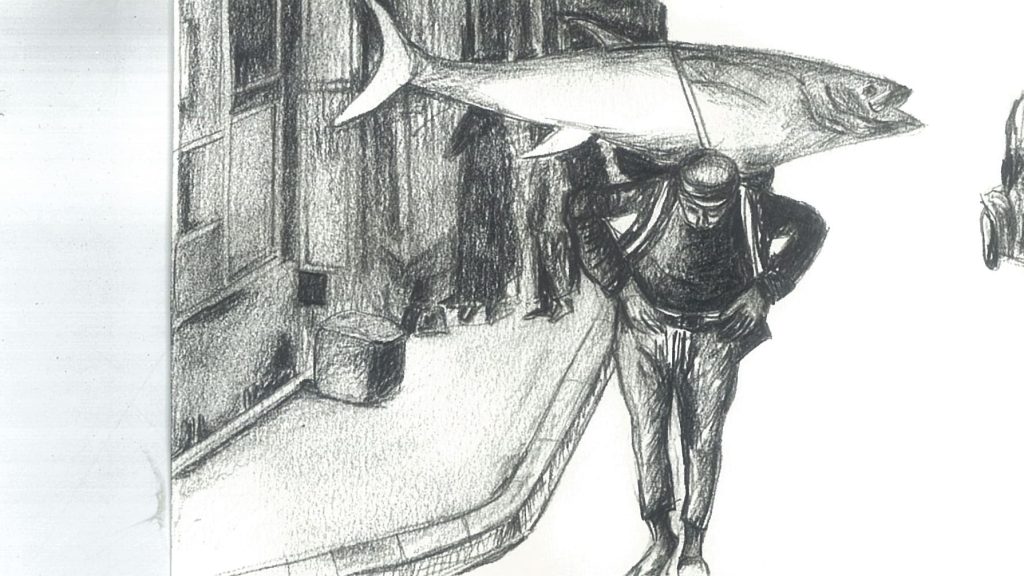
- The mix of time/money and non-quantifiable aspects like education and meaning in a single workplace may get in the way of aiming high. When possible, simplify things. You need money in your life, and you need meaning, but no one said they have to come from the same job. Explore your options if things feel wrong. Value your time highly in cash, but also be ready and happy to completely donate it when educating yourself, giving back, or finding meaning. It makes the data points needed to build your time intuition clearer and the process faster. Also, simplifying this makes it easier to live without expectations, which is something I highly recommend. Simplifying often means quitting – a highly underrated skill. Think about it – if you always quit everything boring immediately, you’ll never do boring stuff. Which means you’ll always do different and interesting stuff and build an intuition for the ages with that amount of diverse data points… while your peers are still in higher education, cramming. And quitting is also connected to the main defensive skill you need in your life:
- The skill to say “no” to opportunities or people will be improved when you develop a loving, understanding relationship with time, how you’re spending it, and the high value you see in it for yourself, your loved ones, and the world. And speaking of time value, let the past stay in the past…

- Don’t judge the time value of the past – You have a lot of time in your life. Never obsess about having wasted any single period of time, even if it has been hugely ineffective or unfulfilling. It’s usually not a waste anyway; your intuition is improving over time, even more during fuckup times. No pressure on single periods – it’s the repeating stuff that makes up the big picture. And the future awaits you.
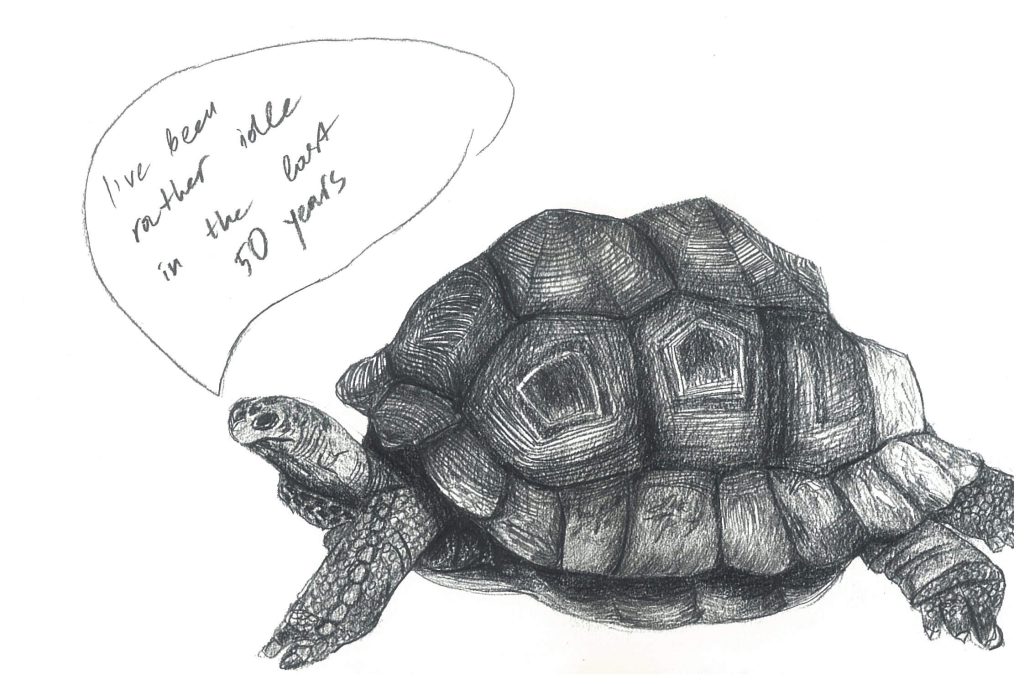
To summarize, priceless time always has complete priority, then comes a mess of time/money and your other values. Try to simplify and remember that current money is a hard necessity; future money is easy, but one day the future money will be the current money of today, and you want to be in a better place then that your current one. And the way is to aim high and thus leave only the best, low-risk-high-reward options to get there. Focus on money or meaning or both, if strong, but not a lot of one and a little of the other, as in my experience, this “clinging and not letting go” is the worst configuration for progress. When something no longer feels a worthy time investment, quit immediately. Learn to say “no” and don’t dwell on the past.
Now, from the methods to the substance, here are the main kinds of time you experience:
- The best – You have a lot of priceless time in your life. Family, friends, love, creative hobbies, time in nature – all of those should always come before work unless you really, really enjoy your work. This way, you have to find work you enjoy… otherwise, you’ll never get to do any work. This “hedonic selection principle” is how you can boot yourself out of your career comfort zone into good career paths. Make priceless time work for your personal growth by removing your bad options! When left with only work options you enjoy, choose a high-paying one so you don’t sacrifice financial freedom. If this sounds too demanding, just start a business, and there you have more long-term freedom about how to run things and have fun. In general, try, learn, gather experience, and don’t miss life’s chances, and the work-life balance will happen by itself.
- The worst – You have repeating non-fun stuff in your life like cleaning, washing the dishes, doing laundry, and non-fun kinds of shopping (which for me is every kind). A sensible path is to eliminate those, sacrificing money instead if possible. I also don’t drive, which is another non-fun activity for me. Not driving frees up a lot of time.
- Mixed time, say, travelling with the subway. It’s not exactly fun, but also not useless – you can read a book or just enjoy some relaxed time. Treat these periods with the thought: What should I do now that will inspire me and create/maintain Hunter mode? This is a personal question with a personal answer. But if there is no answer for you (say you want to become a painter with all your heart, and you cannot paint on the subway, and that thought is killing you), consider freeing up those windows of time, even if the cost is disproportionate. The feeling of having repeating wasted time in your life is mentally damaging and should not exist, which is something worth financially fighting for.
- You have work time. Make it fun, make it happy, make it effective, make it creative. Change everything needed until you find the freedom to make it happen. No compromises with work, as it takes up a lot of your time!
- You have “bot time”. Even the most interesting work is usually mostly bot time – it takes 5 seconds to think of an answer to an email, but 30 seconds to write it, so 25 seconds are bot time. There are always emails, chats, organizing files, finances, and administration. If you write code, you also debug. If you paint, you have to sell the paintings. If you teach, you have to evaluate tests and enter grades. Paperwork and communication are everywhere. How do we approach bot time, which is objectively not fun? For me, “bot time” is my effectiveness sandbox where I want to improve my non-creative productivity every day until my writing/copying/pasting/data entering/file handling speed is as close to my thought speed as possible. When it’s fast and you don’t feel any time is wasted, it becomes fun again 🙂 Because to be ultra fast, you have to use tools (or even code) and be creative. On the other hand, poorly managed bot time is the reason for unimaginable amounts of lost creative motivation, distractions, and low productivity for most of humanity. The brain never turns off. If you have to write an email you have already composed in your head, the brain will float elsewhere to search for something more interesting to think about. Boredom also makes us forget everything very fast and is a core problem in education.
- You have free time that has no immediate potential to turn into priceless one. You have many options – turn it into Work time if work inspires you, do something to improve in the Game of Self or the Game of Life, meet people, play with them games or sports, be in nature, create for fun, or chill with a book or movie… The only bad choices are Probabland and The Underworld – the dark corners of life. Always try to have more attractive options so they cannot suck you in.
I will not give you any more ideas on how to apply intuition to the different kinds of time. This is where your individuality can shine. Be yourself, just don’t forget to aim high and always prioritize the priceless moments. This is universal.
In this cornerstone post, we explored how time intertwines with a lot in our lives. Now is the time to complete the list. We’ll connect the dots on every core I Grow Younger concept. And you will see how time is not against you. Time is your ally.
- The Game of Self – Our main path here is fighting our fears and finding out what makes us happy. Both mean trying new stuff, something, time, and the chaos of life help with. Don’t stand in their way, be a hunter, let life be dynamic.
- The Game of Life – Success here is mostly based on truth searching and accumulating resources like freedom and money. But in time, freedom helps you find more freedom, and money helps you earn more money. Accumulation principles help immensely in The Game of Life… thanks to the exponential curves time supports. In this regard, never be afraid to start from scratch – if the path feels right, progress starts slow but speeds up more than you can imagine.
- Love – The capacities for both self-love and unconditional love often develop later in life. If you sometimes feel your own enemy, you haven’t fully developed self-love. If you haven’t felt ready to live and die for your loved one, to sacrifice without it feeling like a sacrifice, you haven’t experienced unconditional love… which is not bad, it’s actually great news – thanks to time, the best is yet to happen and you’re looking forward to some of the most amazing moments of your life.
- Business and entrepreneurship – The value changes needed to innovate and invest, the windows for making a profit, all exist thanks to time. You just need to be intuitive and adaptive, and you’ll never lack income streams.
- Money – Even the laziest investment in an index fund, and your money grows faster than inflation, thanks to time.
- Career – If you work at a day job, not only you become better over time, but you also become an even more valuable asset to your employer. Which means that your wage should grow even faster than your skills (may need negotiations).
Many studies show that happiness increases with age.
Indeed, when you get wiser, smarter, freer, richer, more loving and more successful, why shouldn’t it? Having more resources also means you can afford to share and give more, which is a huge driver of happiness.
The name I Grow Younger itself comes from the idea that you can be your better self in time. Younger not by age (a meaningless number) but young inside – happy, creative, curious, and joyful. And time is with you on this journey. If you understand it, rather than try to manage it with force. Time is a river, and rivers don’t care about force. Don’t put pressure on your rhythm. If you’re happy and motivated, you’ll be growing fast, if you have given yourself the freedom to grow at any speed.
If you read until here, I know you’ll eventually become mindful about it and find your own beautiful way of sailing the river…
Don’t forget to share and change lives! I’ll leave you with what the beautiful “If” poem by Rudyard Kipling says about time:
If you can fill the unforgiving minute
With sixty seconds’ worth of distance run,
Yours is the Earth and everything that’s in it,
And—which is more—you’ll be a Man, my son!
-
- Campbell, R. Intuition and logic in human evolution.// Communicative & Integrative Biology, Oct 2012.
https://www.researchgate.net/publication/233771091 - Shanmugasundaram, M., Tamilarasu, A. The impact of digital technology, social media, and artificial intelligence on cognitive functions: a review.// Frontiers in Cognition 2, Nov 2023.
https://www.researchgate.net/publication/375910547 - Johannsen, R., Zak, P.Autonomy Raises Productivity: An Experiment Measuring Neurophysiology.//Frontiers in Psychology, May 2020.
https://www.researchgate.net/publication/341416060
- Campbell, R. Intuition and logic in human evolution.// Communicative & Integrative Biology, Oct 2012.





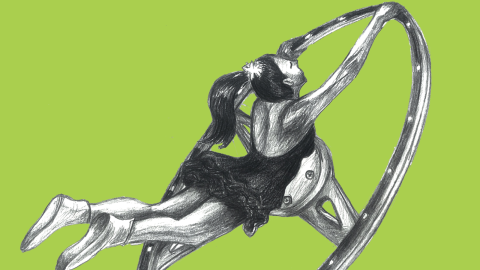























In my opinion, the most important thing is to understand when Time works for you. If you do not feel internal or external pressure about Money or something else now, then you have a big chance of having a ‘priceless’ or ‘growing’ Time right now. It is also crucial to convert as much as possible work and free Time into ‘priceless’ or at least ‘growing’ Time. Of course, some of your free Time should be for sleep and energizing. And some of your work Time should be for Money.
Also, you have to know when to use Time as a Quantity, so you can always say how much Time you have used for this or that today. But on the other hand, you have to grasp that the so-called ‘priceless’ and ‘growing’ Time is when Time becomes a Quality and a Flow in one. That’s the moment when Time disappears and becomes eternity. That’s the moment when the Threshold is crossed and the Quantity becomes a Quality. Time as a Quality is eternity.